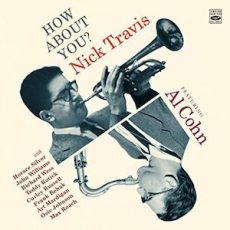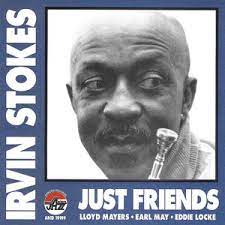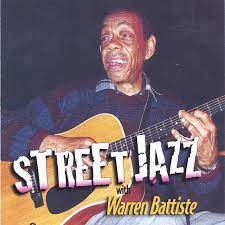
Three Wishes
Nica inquired of Sam Woodyard what three things he would wish for if they could come true and his response was:
- “To keep living! That’s all there is. Because we don’t come through here but once.”
More Posts: drums,history,instrumental,jazz,music

Three Wishes
Baroness Pannonica asked Jimmy Heath if he was given three wishes what would they be. He replied:
- “I wish it would be possible that the statement they make, that “you have paid your debt to society,’ would be true. I mean, when you’ve been to prison, when you come home, it’s suppose to be cool. But you still have a record, it still follows you. It’s always there.”
- “If the world is made over, I would like everyone to be made the same color. Then everyone would be judged by their merits, individually.”
- “I wish I could transfer this wish to my wife.”
More Posts: baroness,history,instrumental,jazz,music,pannonica,saxophone,three,wishes

Daily Dose Of Jazz…
Nick Travis was born on November 16, 1925 in Philadelphia, Pennsylvania and started playing professionally at age 15. In the early Forties he played with Johnny McGhee, Vido Musso, Mitchell Ayres, and Woody Herman.
In 1944 he enlisted, however, after his service he played with Ray McKinley, Benny Goodman, Gene Krupa, Ina Ray Hutton, Tommy Dorsey, and Tex Beneke. By the 1950s he was playing with Herman once more for a short stint, Jerry Gray, Bob Chester, Elliot Lawrence, and Jimmy Dorsey. From 1953-56 he played with Gerry Mulligan, Zoot Sims, Al Cohn, with whom he featured on the one session he led for Victor Records, and was a soloist in the Sauter-Finegan Orchestra.
After this he became a session musician for NBC, Most of his work was in big bands, but he also played in small ensembles. Trumpeter Nick Travis transitioned at age 38 as a result of complications from ulcers on Oct. 7, 1964 in New York City.
More Posts: bandleader,history,instrumental,jazz,music,trumpet

Daily Dose Of Jazz…
Irvin Stokes was born November 11, 1926 in Greensboro, North Carolina. He moved to New York City in 1947 and recorded with a Charlie Singleton sextet in 1949. Throughout the 1950s he worked in the big bands of Tiny Bradshaw, Duke Ellington, Mercer Ellington, Erskine Hawkins, Buddy Johnson, Andy Kirk, and Jimmie Lunceford.
By the end of the decade Stokes was playing in Austin Powell’s ensemble, then went on to record with Bobby Donaldson and Lou Donaldson in the early 1960s. Principally with Broadway musical bands in the 1970s such as Hair, in 1978 he played on the Thad Jones-Mel Lewis Orchestra’s tour of Europe, and with Panama Francis at the end of the decade.
His credits in the 1980s included George Kelly, Illinois Jacquet, Oliver Jackson, and the Count Basie Orchestra. He was a regular performer alongside Spanky Davis at Doc Cheatham’s Sunday brunch gig at the Sweet Basil Jazz Club, continuing in this role after Cheatham’s death in 1997, when Chuck Folds took over. He also played with the Statesmen of Jazz late in the 1990s.
Trumpeter Irvin Stokes, who recorded two albums as a leader, Just Friends and Broadway w/Oliver Jackson, retired from music.
Bestow upon an inquiring mind a dose of a Greensboro trumpeter to motivate the perusal of the genius of jazz musicians worldwide whose gifts contribute to the canon…
Irvin Stokes: 1926 | TrumpetMore Posts: history,instrumental,jazz,music,trumpet

Daily Dose Of Jazz…
Warren Battiste was born on November 8, 1925 in New Orleans, Louisiana and was taught to play the guitar by his father, a banjoist at Preservation Hall. He took four years of instruction at Greenwald Music School in his hometown. Performing at a number of jazz clubs on Bourbon Street, he appeared in the film Shy People with Jill Clayburgh and Barbara Hershey.
As an educator Battiste taught music at Wequachie High School, Essex County College and the Newark Art Center in Newark, New Jersey. He has performed with George Benson, The Platters, The Inkspots, Frank Foster, Barry Harris, Woody Shaw and Illinois Jacquet, among others. Releasing his debut album Street Jazz in 2001, recorded his sophomore release Just Friends three years later and then his album Quiet Storm in 2007.
Guitarist Warren Battiste, who also plays bass, banjo and piano, has received the Lifetime Achievement Award in Jazz from the New Orleans Jazz and Heritage Festival, and was selected as a Jazz All Star in 2000 from New Orleans Magazine.
More Posts: bandleader,banjo,bass,guitar,history,instrumental,jazz,music,piano



